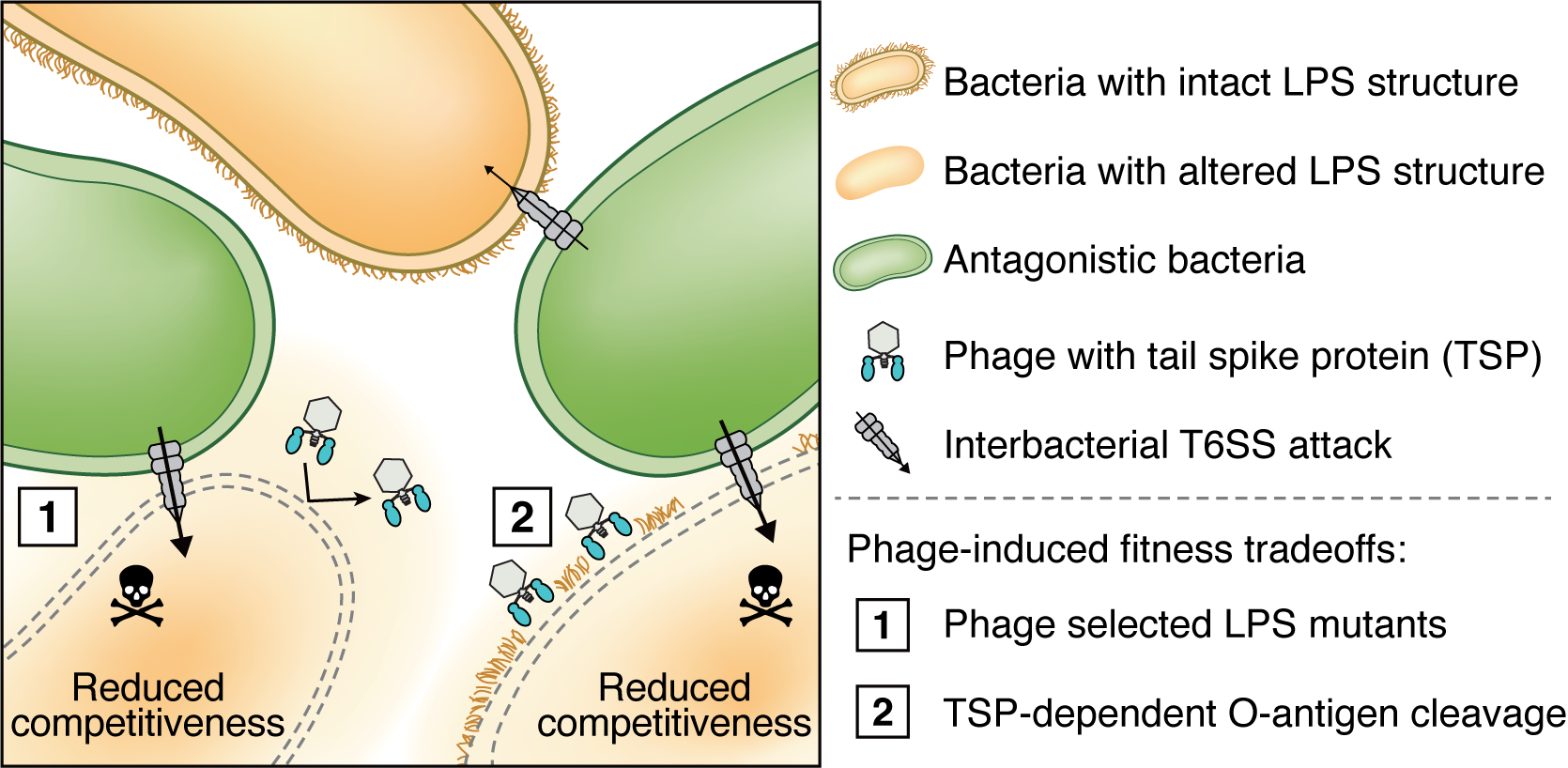Date: 2025-03-24
Bacteria in polymicrobial environments face threats from phages, competing bacteria, and predatory eukaryotes. While bacterial defenses protect against these threats, their tradeoffs remain underexplored. Here, we investigated the fitness costs of phage resistance in Salmonella enterica, showing that phage-resistant variants suffer competitive disadvantages when co-cultured with rival bacteria. These strains exhibit lipopolysaccharide (LPS) deficiencies, increasing their susceptibility to type VI secretion system (T6SS)-mediated attacks. Mutational analysis and atomic force microscopy revealed that the long O-antigen of LPS acts as a protective shield against T6SS intoxication. Additionally, phages with LPS-targeting endoglycosidases can cleave the O-antigen, independently weakening bacterial competitiveness. Our findings highlight two distinct mechanisms by which phage-driven LPS modifications influence bacterial interactions, revealing tradeoffs that shape microbial competition in polymicrobial communities.
This study was published in The EMBO Journal on March 10, 2025. The first authors are Chia-En Tsai, a Ph.D. candidate in the TIGP-MCB program, and Feng-Qi Wang, a master-level research assistant in the Ting lab. This work was conducted in collaboration with Research Fellow, Ing-Shouh Hwang, from the Institute of Physics. The research was funded by the Academia Sinica Career Development Award and the National Science and Technology Council's 2030 Cross-Generation Young Scholars Program – Excellent Young Scholars.
-
Link









 Home
Home

